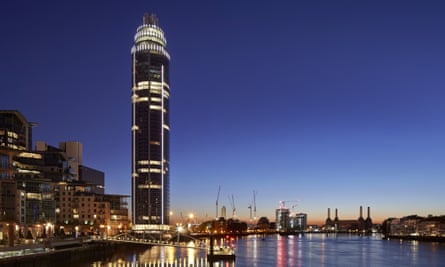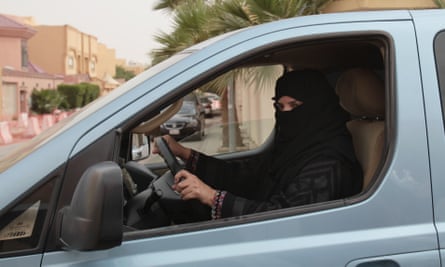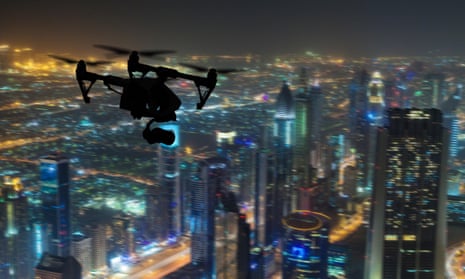Here’s the bad news: technology – specifically, surveillance technology – makes it easier to police disaffected populations, and that gives badly run, corrupt states enough stability to get themselves into real trouble.
Here’s the good news: technology – specifically, networked technology – makes it easier for opposition movements to form and mobilise, even under conditions of surveillance, and to topple badly run, corrupt states.
Inequality creates instability, and not just because of the resentments the increasingly poor majority harbours against the increasingly rich minority. Everyone has a mix of good ideas and terrible ones, but for most of us, the harm from our terrible ideas is capped by our lack of political power and the checks that others – including the state – impose on us.
As rich people get richer, however, their wealth translates into political influence, and their ideas – especially their terrible ideas – take on outsized importance.
In Saudi Arabia, the delusional superstitions of a tiny, super-rich elite exclude nearly 45% of the population from full participation in civic life. This is unequivocally bad for the gulf state, whose next cure for cancer or post-oil economic transition may never emerge because its inventor was stuck indoors waiting for her “male guardian” to drive her somewhere.
But we needn’t only look to the Middle East to find rich people’s bad ideas making everyone worse off.
While Saudi hydrocarbonism denies humanity to women, American hydrocarbonism denies credibility to climate scientists. This is a much more democratically stupid idea in that it will kill rich people as well as poor: even the best-guarded McMansion is still epidemiologically linked to the people dying of tuberculosis outside its walls, and mosquito-borne Zika doesn’t care about your wealth.
In Britain we have the weaponisation of shelter, in which homes become a speculative investment instead of a human right, which massively unbalances the UK economy while distorting work, education and family life – even as our cities fill up with empty tower blocks laden with celestial safe-deposit boxes that may be money laundries for offshore criminals first, and only incidentally places where someone might live, someday.

But this inequality-instability contains the seeds of its own downfall. Letting small elites enforce their cherished, foolish ideas as iron-clad law eventually produces a state so badly run that it collapses, either through revolution or massive reforms (see, for example, Brazil). Smart unequal societies prevent collapse by convincing their elites to hand over some of their earnings to the rest of the country, producing broadly shared prosperity and a sense of national solidarity that transcends class resentments (see, for example, Sweden).
After all, there comes a point when the bill for guarding your wealth exceeds the cost of redistributing some of it, so you won’t need so many guards.
But that’s where technology comes in: surveillance technology makes guarding the elites much cheaper than it’s ever been. GCHQ and the NSA have managed to put the entire planet under continuous surveillance. Less technologically advanced countries can play along: Ethiopia was one of the world’s first “turnkey surveillance states”, a country with a manifestly terrible, looting elite class that has kept guillotines and firing squads at bay through buying in sophisticated spying technology from European suppliers, and using this to figure out which dissidents, opposition politicians and journalists represent a threat, so it can subject them to arbitrary detention, torture and, in some cases, execution.
As technology pervades, spying becomes cheaper and inequality becomes more stable – but not infinitely stable. With enough inequality over enough time, the cherished idiocies of the ruling elites will eventually cause a collapse. All technology does is delay it, which is terrible news, since the longer a foolish policy is in place, the more of a policy-debt we incur, and the worse the payback will be: lost generations, rising seas, etc.
That’s the bad news.

Now the good news: technology makes forming groups cheaper and easier than it’s ever been. Forming and coordinating groups is the hard problem of the human condition; the reason we have religions and corporations and criminal undergrounds and political parties. Doing work together means doing more than one person could do on their own, but it also means compromising, subjecting yourself to policies or orders from above. It’s costly and difficult, and the less money and time you have, the harder it is to form a group and mobilise it.
This is where networks shine. Modern insurgent groups substitute software for hierarchy, networks for bosses. They are able to come together without agreeing to a crisp agenda that you have to submit to in order to be part of the movement. When it costs less to form a group, it doesn’t matter so much that you aren’t all there for the same reason, and thus are doomed to fall apart. Even a small amount of work done together amounts to more than the tiny cost of admission.
What’s more, modern insurgent groups have cryptography on their side. “Cryptographic scrambling” is a new fact in the world, representing the capability of turning messages and files into secrets so thoroughly protected that the keys can never be guessed – not even if all the hydrogen atoms in the universe were converted into computers, and did nothing until the end of time but guess at keys.
Of course, the power of crypto to organise surveillance-resistant communications lines protects everyone from the coercive power of states: not just nice activist groups that want a fairer society, but also whacked-out white supremacists and Islamophobic conspiracy theorists.
And the fluid, improvisational nature of insurgent networks can be a weakness as well as a strength: these groups are great at running between policemen’s legs to escape a kettle, only to reform on the other side of the lines and march on – but they’re not necessarily good at forming or directing a civil service, should they somehow come to power.
From catastrophe to triumph?
The future is never so normal as we think it will be. The only sure thing about self-driving cars, for instance, is that whether or not they deliver fortunes to oligarchic transport barons, that’s not where it will end. Changing the way we travel has implications for mobility (both literal and social), the environment, surveillance, protest, sabotage, terrorism, parenting ...
Long before the internet radically transformed the way we organise ourselves, theorists were predicting we’d use computers to achieve ambitious goals without traditional hierarchies – but it was a rare pundit who predicted that the first really successful example of this would be an operating system (GNU/Linux), and then an encyclopedia (Wikipedia).
The future will see a monotonic increase in the ambitions that loose-knit groups can achieve. My new novel, Walkaway, tries to signpost a territory in our future in which the catastrophes of the super-rich are transformed into something like triumphs by bohemian, anti-authoritarian “walkaways” who build housing and space programmes the way we make encyclopedias today: substituting (sometimes acrimonious) discussion and (sometimes vulnerable) networks for submission to the authority of the ruling elites.
Walkaway represents a hopeful future. Hopeful futures aren’t places where nothing goes wrong; they’re places where, when things go wrong, people can put them back to rights.
Designing systems on the assumption they’ll never fail doesn’t give you good systems, it gives you the Titanic. Smart engineers know entropy isn’t just a good idea, it’s the (second) law (of thermodynamics) and plan accordingly, designing systems that glide to a graceful halt when they go wrong – rather than exploding in a cloud of white-hot shrapnel.
Technology is not preordained to save us from inequality, but without a free, fair and open network with which to rally and marshall the forces of justice, the battle is lost before it’s even joined.
Likewise science fiction doesn’t predict the future – because the future isn’t predictable, it’s contestable. Science fiction signposts allegedly inevitable things that we do not need to accept, let alone excuse.
Futures like mine aren’t predictions, they’re landmarks on the far horizon. By keeping our eyes on them as we cross the difficult, unmappable terrain ahead of us, we might reach them – or find something just as good along the way.
If nothing else, they fire our imaginations and our indignation, and answer those who say “there is no alternative” but who mean “please don’t try to find an alternative”.
Cory Doctorow’s latest novel is Walkaway, from Head of Zeus (UK) and Tor Books (US). Get the DRM-free audiobook at Downpour.com or craphound.com/shop
Read more of the Guardian’s new Inequality Project here. To get in touch, email inequality.project@theguardian.com
